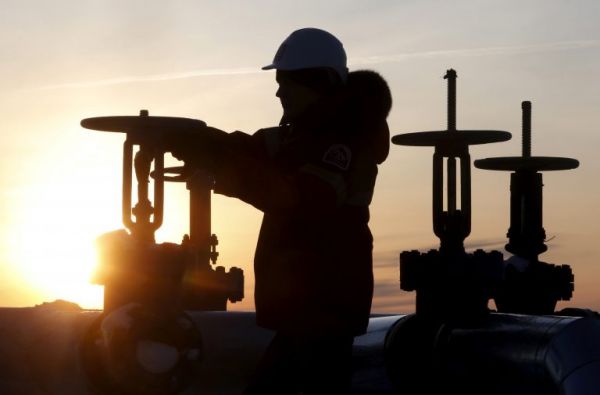
“Kronos”, “Glaucus”, “Aphrodite“, “Calypso” are planets, gods and muses, but also plots with trillions of cubic meters of natural gas in the Cypriot EEZ. Cyprus prefers to give names of gods of Olympus or planets, and even former presidents, to its marine plots in which exploitable natural gas is discovered, which – if one adds all these deposits – can cover not only the needs of Cyprus, but also of the whole of Europe for many years.
Read also: TotalEnergies – ENI: Large natural gas field off the coast of Cyprus
But how much natural gas is “hidden” in the Cypriot EEZ, when can this be exploited and how? When might the blue flame erupt from the drill rigs – an indication that the natural gas is of high quality and ready to be extracted? Questions that need an immediate answer, now especially with the increase in price due to the Ukraine war, now that Erdogan is eyeing the Cypriot sea plots, with his four drilling rigs and with his maximalist philosophies of “blue homeland”?
The possible effects
In Athens, the discoveries of new deposits in Cyprus, made by oil giants, were welcomed with satisfaction, but there is also a kind of concern as to whether all this marine wealth coming from Cyprus will also have an impact on the geopolitical map of the region. Turkey, as is known, does not rule out sending its new drilling rig, the one that is now drilling in the seabed of the Turkish EEZ, to plot 6 of the Cypriot EEZ (where the new field was found) in the second phase.
Of course, the energy agreements that Cyprus signed with Israel and Egypt (under the supervision of the Americans) and the fact that the energy interests of the USA, France, Italy, Qatar and Egypt are located in the Cypriot EEZ are a guarantee. However, Erdogan has proven that he does not respect any rule of international law, and under the pretext of protecting the interests of the occupation regime in Northern Cyprus, he can once again send a drilling rig and frigates to the region.
The wealth of the sea
After the discovery of a new field in the “Kronos” target, in offshore block 6 of the Cypriot EEZ, with an estimated capacity of 2.5 trillion cubic feet (tcf), the total potential capacity of Cyprus in natural gas amounts to between 11.7 tcf and 14 .7 tcf (4.2 tcf “Aphrodite”, 5-8 tcf “Glaukos”, 2.5 tcf “Kronos”).
Any quantity confirmed at the Calypso field at 6 is not counted, as ENI announced in 2018 that it had found a deposit, but has not yet made an official estimate of the quantity, which is unofficially estimated at between 1 tcf and 3 tcf, without having established if it recoverable, due to peculiarities in the seabed. In other words, we are talking about a very large amount of 11.7 tcf to 14.7 tcf. This is the estimate for already identified reserves from previous drilling, only 4.2 tcf of Aphrodite is partially confirmed and pending a second confirmation drilling, which may be performed by Chevron in 2023.
According to the Cypriot newspaper “Phileleftheros”, for ExxonMobil’s confirmatory drilling in the “Glavkos” field (last March), no announcement was made about the potential of the field, which was initially estimated between 5 tcf and 8 tcf. If all this is formalized and added to the already announced yields, then we will be talking about quantities reaching 20 tcf.
In March 2019, the Cypriot government, with Exxon’s vice-president Tristan Asprey by his side, “revealed” a deposit of between 5 and 8 trillion cubic feet in the “Glavkos” location of Block 10. Block 11 is an offshore block in the EEZ of the Republic of Cyprus which is located in the south off Limassol. The “Onisiforos” natural gas deposit has been identified in this block.
It has been confirmed that there are indeed natural gas deposits in Cyprus, but are they all exploitable? And by which pipelines will they be transported to Europe, after the (American) “torpedo” against the building of the EAST MED pipeline? In Block 12’s Aphrodite field, west of Leviathan (the largest natural gas field discovered in the last decade) Israel has a confirmed 4.5 trillion cubic feet. However, the great depth (1,700 meters), the difficult rock and the long distance from Cyprus make mining costs prohibitive. Unless Exxon Mobil tries.
The benefits for Cyprus
Theoretically, the amount of natural gas e.g estimated as contained in the depths of “Kronos” is sufficient to cover the current needs of Cyprus in power generation fuel for 60-70 years, while “Aphrodite” could cover the power generation needs for almost twice that period.
However, the government, ministry technocrats and the companies themselves consider that it is economically unprofitable to transport the “Cypriot” natural gas exclusively on land for the production of electricity, without first extracting reserves as part of a wider exploitation plan, with the sale of most quantities to other buyers. Therefore, as pointed out by the Energy Minister of Cyprus, Natasa Pileidou, the transport of the gas to Egypt for liquefaction and sale to (probably European) buyers remains the prevailing scenario
Latest News

Airbnb Greece – Initial CoS Ruling Deems Tax Circular Unlawful
The case reached the Council of State following annulment applications filed by the Panhellenic Federation of Property Owners (POMIDA)

Mitsotakis Unveils €1 Billion Plan for Housing, Pensioners, Public investments
Greek Prime Minister Kyriakos Mitsotakis has announced a new set of economic support measures, worth 1 billion euros, aiming to provide financial relief to citizens.

Alter Ego Ventures Invests in Pioneering Gaming Company ‘Couch Heroes’
Alter Ego Ventures' participation in the share capital of Couch Heroes marks yet another investment by the Alter Ego Media Group in innovative companies with a focus on technology.

Corruption Still Plagues Greece’s Driving Tests
While traffic accidents continue to claim lives on Greek roads daily, irregularities and under-the-table dealings in the training and testing of new drivers remain disturbingly widespread

Pope Francis Died of Stroke and Heart Failure Vatican Confirms
As news of the official cause of death spread, tributes poured in from across the globe. The 1.4 billion-member Catholic Church is united in grief, remembering a pope who championed inclusion, justice, and compassion

Increase in Both Museum Visits, Revenues for 2024
As expected, the Acropolis was the top archeological site in the country, followed by Sounion, Mycenae, the ancient theater of Epidaurus, and Vergina in northern Greece

Where Greece’s Tourists Come From: A Look at 2025’s Top Visitor Markets
The United Kingdom continues to hold the top spot as the largest source of incoming tourism, with 5.6 million seats booked for Greece this summer — up 2.2% from last year. This accounts for 20% of all international air traffic to Greece

Pope Francis: A Pontiff Who Reshaped the Papacy and Sparked a Global Conversation
His first words from the balcony of St. Peter’s Basilica—“Brothers and sisters, good evening”—set the tone for a pontificate that would challenge norms, favor mercy over dogma, and bring the papacy closer to the people.

When Blue Skies was Unmasked as ND’s Political ‘Slush Fund’
The fact that so many top New Democracy (ND) party cadres were paid by the firm Blue Skies, owned by Thomas Varvitsiotis and Yiannis Olympios, without ever citing this publicly, raises very serious moral issues, regardless of the legality

Greek Women’s Water Polo Team Top in the World after 13-9 Win Over Hungary
The Greek team had previously defeated another tournament favorite, the Netherlands, to reach the final.











![Πλημμύρες: Σημειώθηκαν σε επίπεδα ρεκόρ στην Ευρώπη το 2024 [γράφημα]](https://www.ot.gr/wp-content/uploads/2025/04/FLOOD_HUNGRY-90x90.jpg)




![Ξενοδοχεία: Μεγάλο το ενδιαφέρον για επενδύσεις στην Ελλάδα – Η θέση της Αθήνας [γραφήματα]](https://www.ot.gr/wp-content/uploads/2025/03/Athens-hotels-90x90.jpg)
























 Αριθμός Πιστοποίησης
Αριθμός Πιστοποίησης